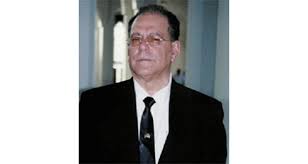The truth about Houston and Versailles: I cannot allow a pack of lies to stand
Dear Editor,
I refer to a letter from Charles Sohan in the Dec. 13th 2019 edition of another newspaper captioned “Aquaculture will not return GuySuCo to profitability”. Contained in the missive Sohan writes, are his statements that the government cannot run anything; that I have no real evidence that aquaculture is much more lucrative than sugar; that I presided over the closure of Versailles and then Houston; that all sugar lands are as valuable as Houston’s land; that my family doesn’t pay its taxes, etc.
I know Sohan, he is a nearly 90-year-old former hydraulics engineer, who incidentally never worked in the sugar industry at any level; whose entire knowledge of sugar was gleaned from me. He has been living in Brooklyn, but is usually in a mental state when he believes that he is still here.
This is the third time that this man has attacked me, and I can’t understand why. My problem is that I cannot allow a pack of lies to stand.
First, I want to address this sentence from Sohan’s letter “Ironically, Mr. Vieira, during his management of the Versailles and Houston sugar estates and subsequent guidance of their closures, never suggested that their sugar lands be converted into aquaculture ponds to return the estates to profitability, but he finds it compelling to propound that GuySuCo should do so now…”
Editor, I never even worked at Houston much less manage it, or close it. GuySuCo closed the Versailles factory in 1987; this decision had nothing to do with me. Mr. Harold Davis and the Board of GuySuCo closed it since it belonged to GuySuCo, and they built a waterway between Versailles and Uitvlugt, and it was an economic disaster for Versailles, which was supplying cane to the Uitvlugt factory.
Versailles was forced to sell land to GuySuCo around 1990, because the waterway was such a big disaster that in three years it placed Versailles in a debt, which we literally could not repay. I imagine that the same thing is presently happening to the poor cane farmers at Wales.
So to summarize:
1. GuySuCo closed the Versailles Factory, not the Vieira Family who did not own it.
2. GuySuCo built a waterway between Versailles and Uitvlugt which was a total economic disaster for the owners of the Versailles cane lands and its workers, and
3. We had to sell 800 acres to GuySuCo to pay the 11 million dollars in losses we made between 1987 to 1990 due to the closure of the factory, 800 acres to pay an 11 million Guyana dollars debt, because the Socialist concepts of the Burnham government at the time, was that the government was not going to buy cane lands from private people, even transported land – only the developmental costs.
And the bad way the waterway was run by GuySuCo, it was the ultimate irony that to pay the people who closed the factory, built a waterway which never worked, which caused Versailles to make massive losses, had to give away its land to GuySuCo for losses caused by GuySuCo.
After it finally went bankrupt, a liquidator, Barcellos & Narine was appointed to dispose of the land. This is the massive profit Freddie Kissoon wrote about – a family selling its land to pay its debts, trying to grow sugar in Guyana. Over time, even at Houston we had to sell land to Banks DIH to finance our losses trying to grow the sugar cane plant under the Guyana political and other conditions, one of my brothers who had established a fishing business, actually guaranteed a 10 million-dollar loan for Houston at Demerara Bank to finance its losses.
Editor, it is unreasonable to believe that GuySuCo has been in serious trouble for several decades and was depending on Government bailouts and loans to survive, but the Vieira’s, using the workers with exactly the same union conditions as GuySuCo, were making big money from it.
So Charlie, the reason why I am suggesting GuySuCo make the conversion to aquaculture and not my family is simple, to do such a conversion you would have to have deep pockets.
A company forced to abandon cane growing because it is bankrupt like Versailles and Houston, cannot even think of converting to aquaculture. It is why the Government of Guyana, faced with the problems it now faces in the sugar industry, and the political problems it represents to the electorate – in this case, nearly 50% – must think very seriously about GuySuCo’s diversification and continuity, since they must dip into the consolidated fund to establish the aquaculture industry, but it is not only economically feasible, which cane is not, it’s a political imperative that they provide employment to people who have given their lives to that industry; in any event small scale aquaculture operations very rarely succeed.
For it to succeed, you must integrate everything, manufacture the feed, process the fish to fillets, fly it to the US markets as fresh catch within 36 hours of catch packed in ice and not frozen, etc.
Every letter I ever wrote carries one message: if a state-owned enterprise is being badly run, do like Desmond Hoyte and hire competent international management teams to run it. We as a nation already learned this lesson in 1987, why are our public officials not aware of it?
Well, it is my opinion that they are not made to be aware of it, because we don’t make them answerable to us. If we were holding them to account, they would be forced to remember the lessons of the past. And I am stating now that the local management team of GuySuCo is not up to the task to turn GuySuCo around now. NICIL’s managers are also not up to the task and are confusing the situation, because they themselves don’t know what they are doing!
The union officials are right this time, GuySuCo having shed the estates, which were making losses, despite promises to the electorate, are still making losses! We MUST hire an international team to run it.
I even made the reference to the fact that Robert Persaud in 2007 removed the Booker Tate management team, placed there by Desmond Hoyte, and caused most of the collapse, which we now see going on in the industry. In 2004, the industry with Tate managing it, produced 235,000 tonnes of sugar, it was the last time we produced anywhere close to 200,000 tonnes.
Sohan is wrong, Guyana has the potential to become a world class producer of farmed raised fish. It is now confirmed by a world-class aquaculture expert brought here by GuySuCo in 2015/2016. And if I had to choose a place on this planet which at this time is the most unsuitable for the growing of sugar cane today, this country’s coastal plain will be my first choice.
On the other hand, if I were to look worldwide to select a place to establish aqua farming, Guyana would be among the top 5 places which I would pick.
Editor, my family carried on the production of sugar cane for nearly three-fourths of a century at Houston, through world wars, the 60’s disturbances in Guyana when our cane was burnt by arsonists, Aqueducts were bombed, and throughout the past 40 years when, no country I can think of had more strikes by the workers than the Guyana sugar industry and our workers belonged to the same unions MPCA and then GAWU, as Bookers and then GuySuCo.
We persevered through the years of uncertain transition to socialism, the failing foreign exchange situation to buy raw materials for the cultivation – some years, we even bought our raw materials at G$20 to US$1, but we were paid at an exchange rate of G$6-US$1 for our produce, until President Hoyte established the cambios.
We weathered the massive upheavals in oil prices of the 70’s, the fluctuating sugar prices worldwide in the 70’s and 80’s, the sugar levy and the local subsidy of sugar, and the withdrawal of the preferential prices for sugar at the EU.
GuySuCo can’t have been failing economically for decades, but we did not! That concept flies in the face of reason! And I am giving due notice: I am prepared to handle anyone in court who thinks that we benefited financially from these lands in any significant way over the years and want to victimise us now, it is an illusion.
Guyana benefited much more, since every ounce of sugar produced at Versailles and Houston was sold by the government to replenish the foreign exchange of the country. We owe the fact that we still have this land due to two great men, my grandfather Manoel Vieira who bought it, and my father Joseph Vieira, who was an outstanding Estate Manager, maybe even the best in our history, and it was due to his excellence that we even survived this long.
So Charlie, today the Houston lands are valuable, since with blood in our eyes, we persevered for nearly a three-quarters of a century to hold it. To do so, we had to sell major parts of it, until today all that is left is some lands at Houston, which now have good real estate potential, which the 100,000 acres of GuySuCo rural lands cannot possibly hold. So in the end, holding on to it with blood in our eyes has finally returned a dividend.
And Freddie, whatever you may concoct in your column, there is only one fact – the Vieira family is very large; my grandfather had 12 children, those of us who advanced like my brothers in the fishing and boat-building businesses were very successful men and had nothing to do with land or the dividends from Houston and Versailles, since over the decades, from the 60’s to now there was very little – a fact it will be my pleasure to explain to the CCJ in time.
Most of us opted to enter other areas, since the sugar growing was for us a disaster. Many live abroad, some do not even own cars, and have to work as teachers, and in stores.
I made nothing in the sugar industry, since I was paid like the other sugar estate managers, and I, in 1992, even abandoned it to develop my Television business, and that was when I finally made a few dollars.
It is an obscenity that the situation can now be distorted as it is by people who do not understand it, to say that this is a massively wealthy family.
Finally, my great grandfather Manoel Vieira came to Guyana as an indentured labourer and worked on the West Coast of Demerara at Blankenburg. His son, my grandfather, went into the gold and diamond fields of Guyana and after 30 years, he emerged around 1926 and commenced buying sugar estate lands.
By that time, slavery was abolished for more than 90 years and even indentureship was stopped since 1917. So my family never brought indentured labourers from anywhere, and we sure as hell did not have slaves.
Tony Vieira






















